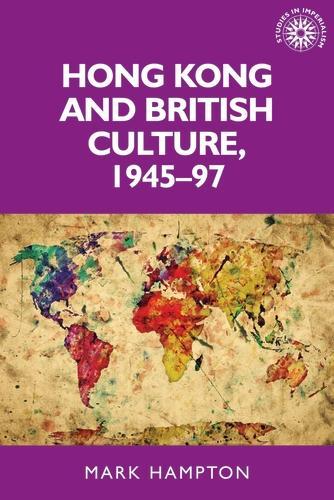
Hong Kong and British Culture, 194597
(Paperback)
Available Formats
Publishing Details
Hong Kong and British Culture, 194597
By (Author) Mark Hampton
Manchester University Press
Manchester University Press
2nd June 2017
United Kingdom
Classifications
Physical Properties
Paperback
248
Width 156mm, Height 234mm
Description
This book examines the British cultural engagement with Hong Kong in the second half of the twentieth century. It shows how the territory fit unusually within Britain's decolonisation narratives and served as an occasional foil for examining Britain's own culture during a period of perceived stagnation and decline. Drawing on a wide range of archival and published primary sources, Hong Kong and British culture, 1945-97 investigates such themes as Hong Kong as a site of unrestrained capitalism, modernisation, and good government, as well as an arena of male social and sexual opportunity. It also examines the ways in which Hong Kong Chinese embraced British culture, and the competing predictions that British observers made concerning the colony's return to Chinese sovereignty. An epilogue considers the enduring legacy of British colonialism. -- .
Reviews
'A richly detailed study of Britain's cultural engagement with one of its most successful if under-studied colonies, Hampton does a wonderful job of showing us how Britain imagined Hong Kong and its people, how Britons actually lived in the colony and how locals regarded the British presence in an era of decolonisation. Hampton plumbs a wide array of materials to furnish us with this invigorating and original, as well as immensely readable, study.'
Philippa Levine, the University of Texas
a well-written and original study that deserves to be widely read.
Tanja Bueltmann, Northumbria University, The American Historical Review, Vol 122, Issue 1
'Highly illuminating and meticulously researched, the book shows that British commentators were either fascinated with Hong Kongs transformation from a barren rock into a dynamic city, or critical of Hong Kongs money-making and non-white character. By exploring the complex interplay between metropolitan and colonial cultures, Hampton has not only addressed a neglected aspect of Hong Kong history, but also provided valuable insights into postwar British society and culture. [] In short, Hampton has written a thought-provoking and hugely entertaining book, which lies at the intersection of British imperial and cultural history and Hong Kong history.'
Journal of Social History
Author Bio
Mark Hampton is Associate Professor of History and Director of the Centre for Cinema Studies at Lingnan University
